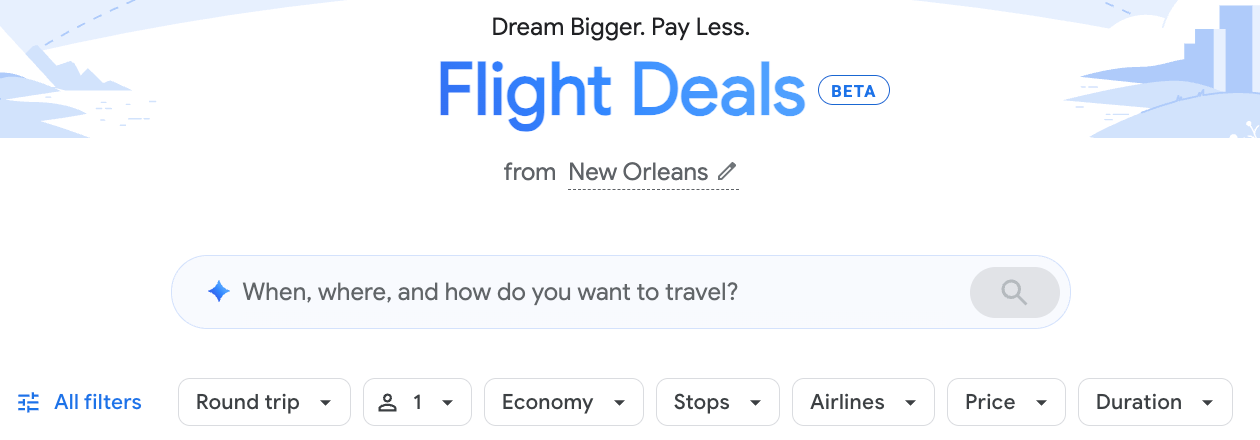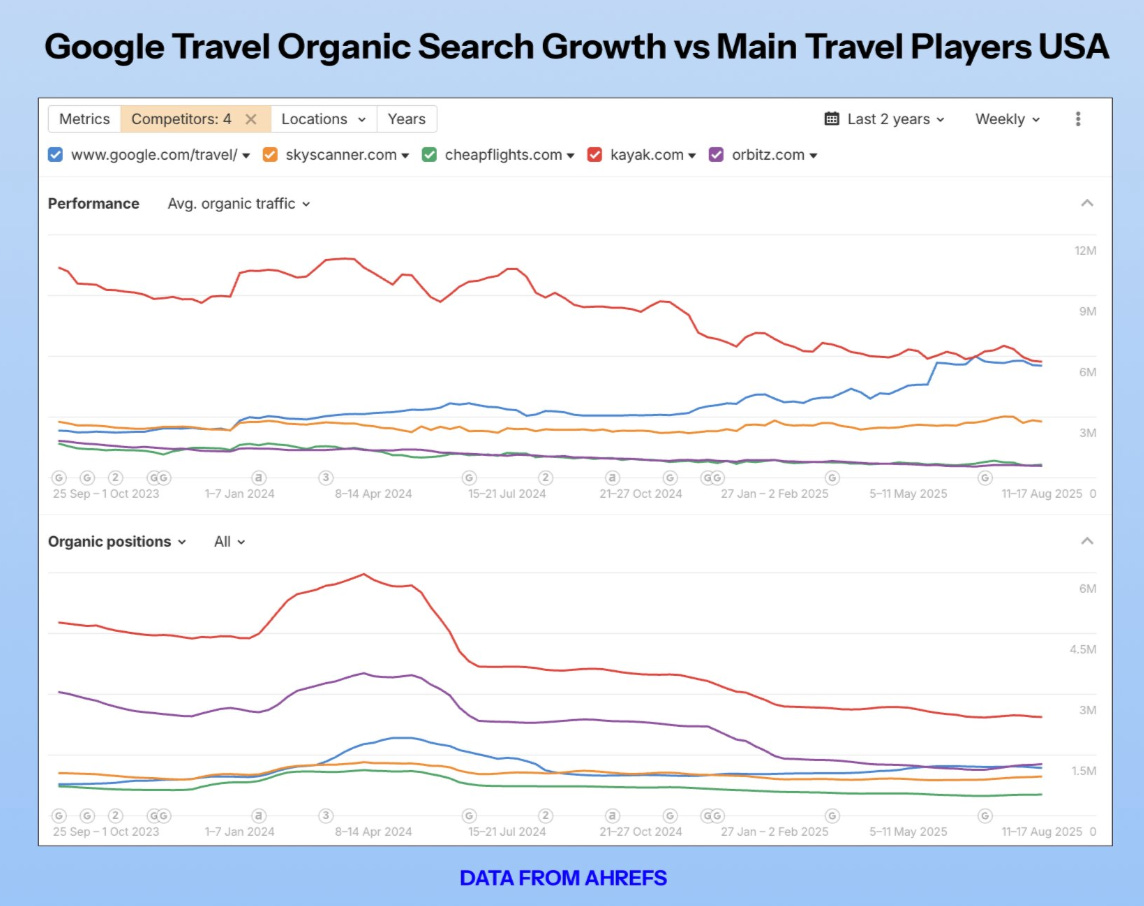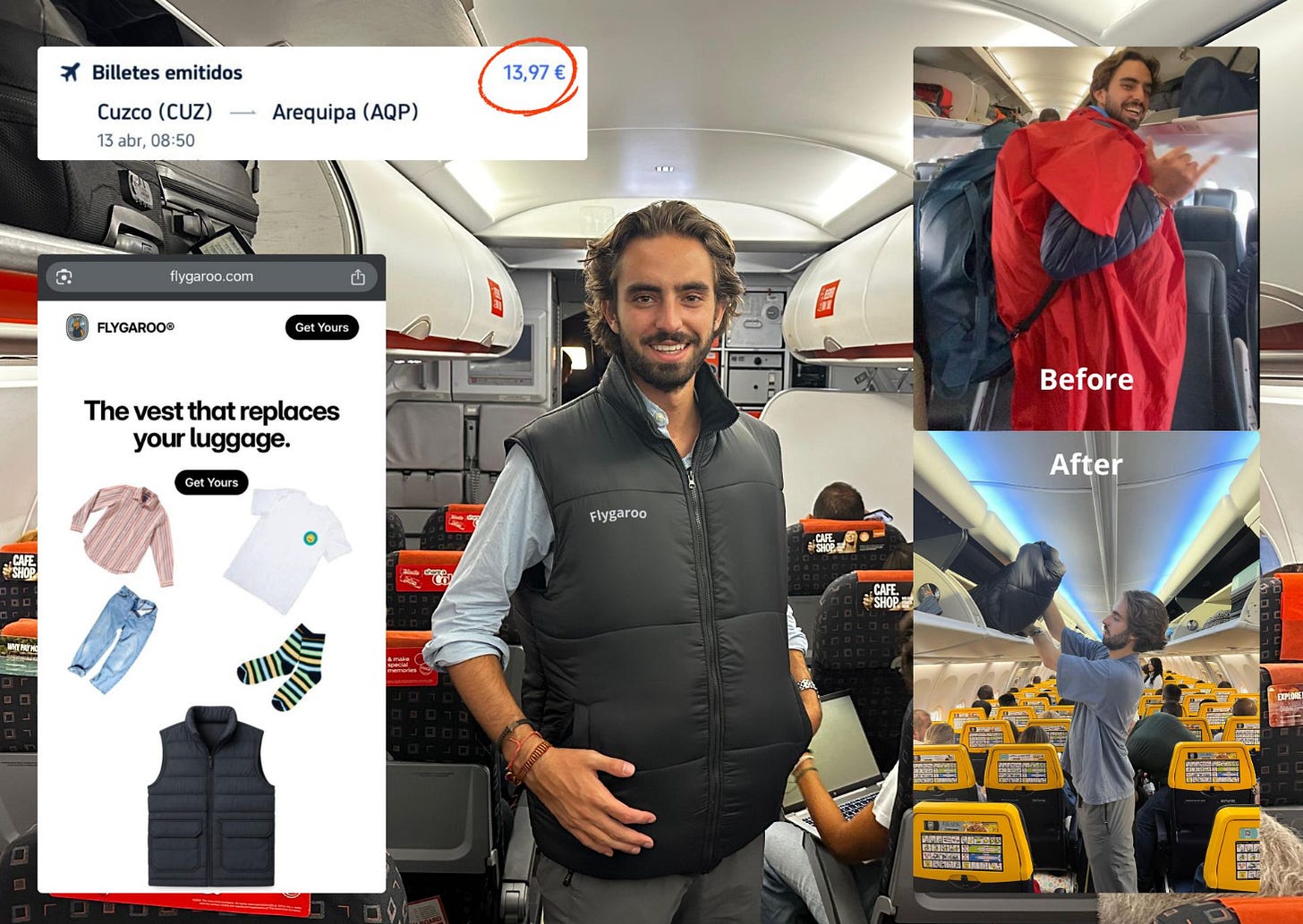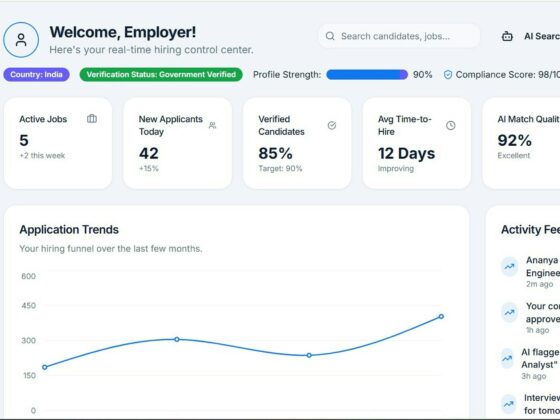So much of travel comes down to balance. Between people and algorithms. Between crowds and hidden gems. Between the speed of AI and the value of human touch. In this issue, we explore how balance shapes the future of travel, whether it’s TikTok redistributing demand overnight, Google pulling travelers deeper into its funnel, or founders deciding what to automate and what to keep human.
Special thanks to Propellic for sponsoring this edition of the newsletter:
163% increase in ROAS, 14x LLM citation growth, and 80% increase in YoY revenue – read about these travel marketing case studies and more at Propellic.com.
1. Forget “overtourism.” The problem is distribution
I agree with Martin Soler: it’s time to retire the word overtourism. Crowds in Amalfi aren’t proof that tourism itself is broken. They’re proof that demand is pooling in the same few destinations at the same time. The framing matters: calling it “overtourism” makes tourism the villain.
Skift claimed in 2016 that it coined the term “Overtourism” and even tried to trademark it. But the U.S. Patent and Trademark Office refused the application, noting that “overtourism” had already been used for decades by journalistic and academic sources, and that businesses and competitors should be free to use merely descriptive language. It’s a good reminder of how easily an industry can get stuck in one narrative that turns a complex challenge into a branded buzzword.
Tourism isn’t the problem. It fuels economies and cultural understanding. Martin says it’s a funneling issue. Algorithms, itineraries, and platform rankings concentrate demand into a handful of hot spots. The fix is distribution: predictive AI to anticipate surges, platforms that nudge visitors toward nearby towns, and itineraries that spread demand across a region. The goal shouldn’t be fewer travelers, but a better balance. Read Martin Soler’s post.
2. Overtourism is a luxury problem
Complaints about “overtourism” often come from people who’ve already had their own travel experiences and now want to pull the ladder up. Sometimes the frustration is voiced by locals, too, and those impacts are real. But calling it “overtourism” lumps everything together in a way that makes tourism itself the villain, instead of focusing on solvable design, policy, and distribution challenges. Mass tourism is really just the democratization of experiences once reserved for elites. “Overtourism” could be interpreted as “too many of the wrong people are accessing the places I consider mine.”
Framing tourism as a carrying-capacity issue also misses the point. Cities have constantly evolved to absorb flows of people and commerce, and tourism is just the latest wave. Treating them like fragile museum pieces is what makes them breakable. Instead of rationing access, why not build destinations that thrive with more visitors? That might mean designing “anti-fragile” systems that get stronger under pressure, embracing chaos with creativity instead of trying to police and chastise demand.
We need more imagination.
3. Virality as distribution
If the problem is really about distribution, TikTok shows how quickly that distribution can change. The “hidden gems” trend has pushed millions of travelers toward small restaurants, trails, and neighborhoods, sometimes overnight. The #HiddenGems hashtag works like a global guidebook written in real time, and 71% of European TikTok users say they’ve booked a trip based on what they saw there. It’s proof that discovery is no longer top-down. Demand can be redirected by culture and algorithms just as much as by policy. For places that go viral, it’s both opportunity and pressure: a sudden wave of travelers that forces communities to rethink what “hidden” really means.
4. Google launches AI-powered flight deals
Google launched Flight Deals, a new feature inside Google Flights for travelers who care more about saving money than locking in a specific destination. Instead of adjusting dates and filters over and over, you can just type something like “week-long winter trip with great food, nonstop only” or “10-day ski trip with fresh powder,” and the AI will surface options that fit. It pulls from Google’s flight search data and lets you search the way you’d talk to a friend. The result is cheaper tickets plus destinations you might not have thought of. It’s rolling out now in the US, Canada, and India.
5. Google gains ground in the travel funnel
Aleyda Solis points out that Flight Deals is another step in Google’s takeover of the travel funnel. Google’s Travel Hub is already pulling organic traffic on par with Kayak and ahead of Skyscanner, ranking at the top for searches like “flights” and “cheap flights.” In July, the Google Flights page drew nearly a million organic clicks in the US (Similarweb).
6. The human touch premium in Travel
Greg Isenberg predicts that by 2026, the most valuable skill won’t be knowing how to use AI, but knowing when not to. Human touch, he argues, will trade at a 20x premium. That feels especially true in travel. Automation will keep eating the boring stuff, but when it comes to moments of meaning, people are the product. A tour guide who reads the room, a chef who explains a dish, a host who remembers your last visit…those are experiences no AI can replicate.
The challenge for founders is to design for both. Lean on machines where friction is just a hassle. Invest in humans where story, memory, and connection are created. In a world where AI automates everything, human moments are what people will pay extra for.
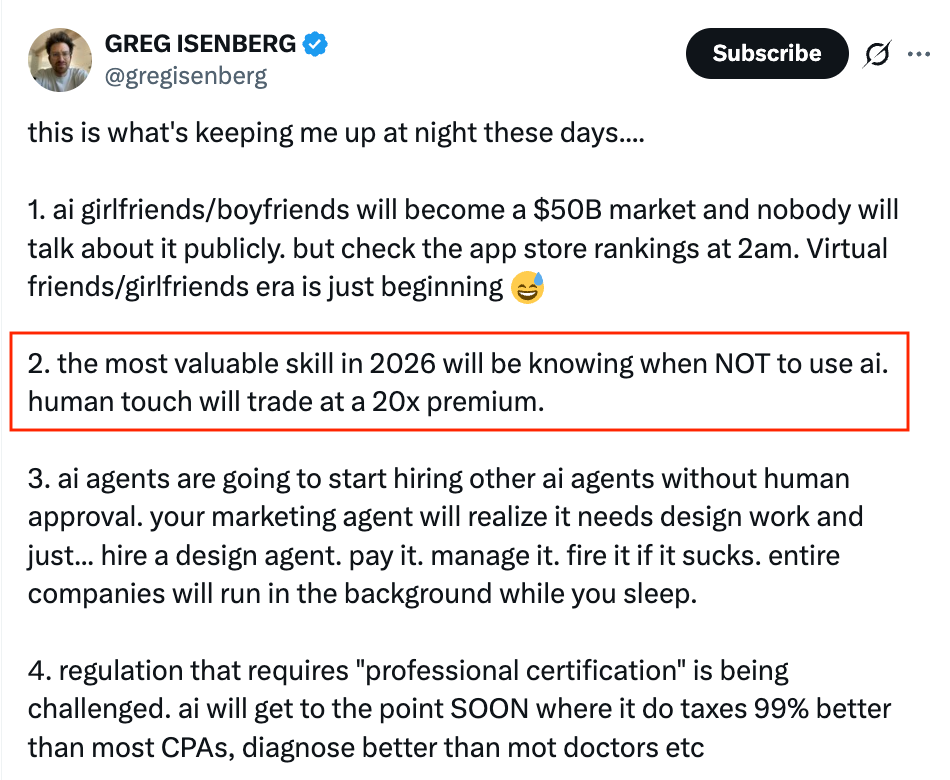
7. The AI curve for founders
Balaji Srinivasan frames a similar idea from another angle: 0% AI is too slow, but 100% AI produces low-quality results. The right mix is somewhere in between. The exact balance varies by situation, but just the idea that 0% and 100% are both suboptimal is useful.
Avoiding AI entirely means operations drag. Fully relying on it makes the experience feel generic and empty. The opportunity is in finding the curve, using AI for speed and efficiency, while keeping people in the loop where story, trust, and connection matter most.
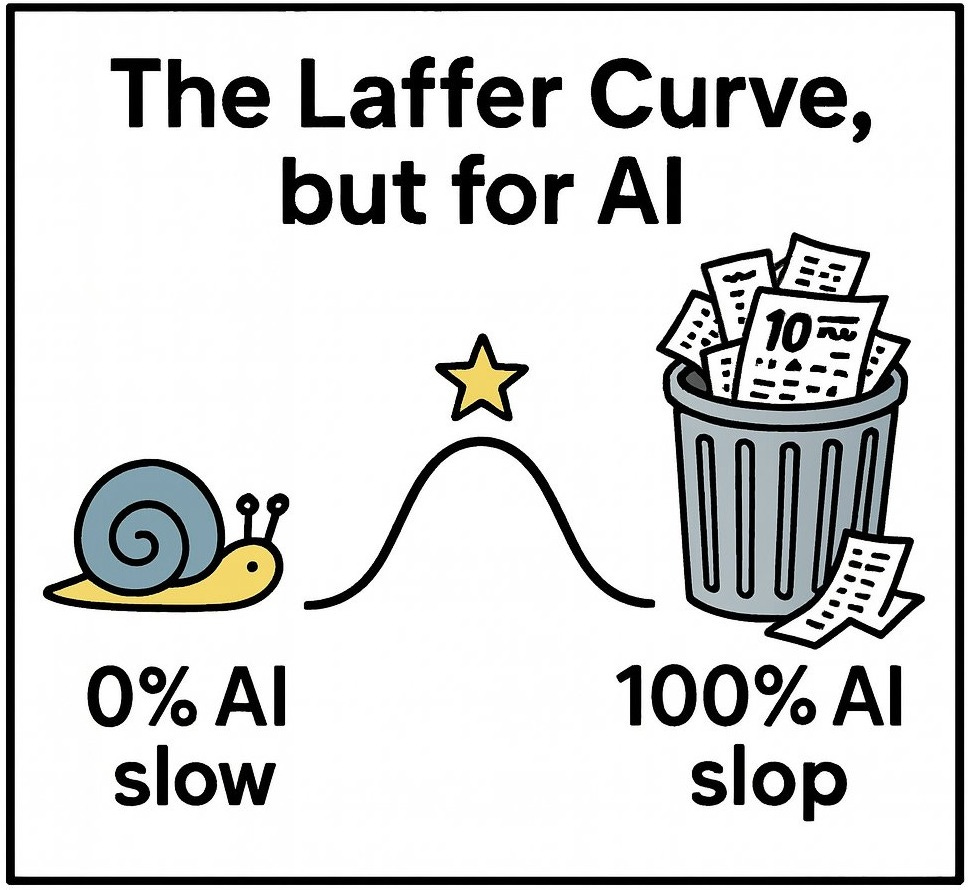
8. Excellence is mundane
Jay Alto resurfaced Daniel Chambliss’ 1989 study The Mundanity of Excellence, which looked at Olympic swimmers. It argues that we often misunderstand what it takes to become excellent. Excellence is less about natural talent or endless hours of training and more about small, qualitative improvements. Tiny refinements in form, technique, and habit repeated until they compounded. What often gets labeled as “talent” was, in reality, the accumulation of ordinary actions, practiced so carefully they became second nature.
The same applies in company-building. There’s no hidden hack. Progress comes from ordinary work, done with care, stacked up over time until it looks extraordinary.
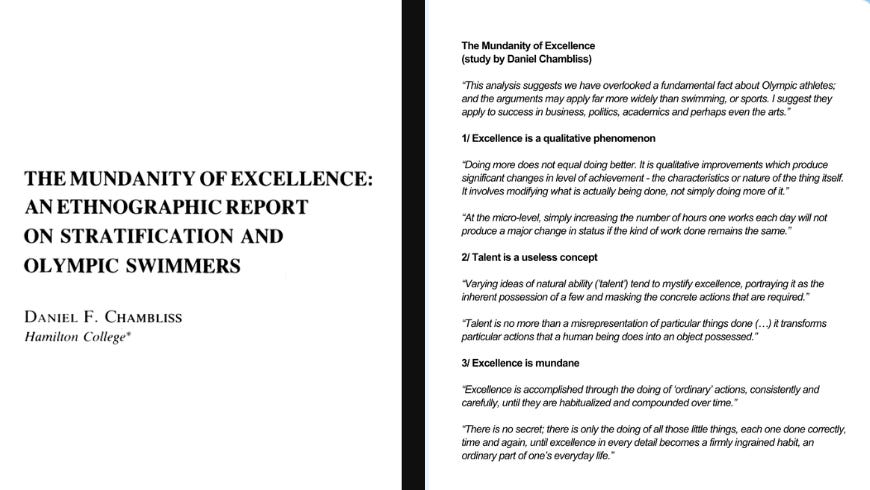
9. Build around what doesn’t change
Most startup pitches focus on what’s changing (new technologies, emerging markets, shifting behaviors), but the billion-dollar companies focus on what never changes: fundamental human behavior and needs. Some of travel’s unchanging constants include trust as the ultimate currency, decision anxiety, status signaling, and information asymmetry.
Instead of asking “What’s the hot new trend?” ask “What human need does my product serve that will be just as relevant in 10 years?“
10. A jacket that replaces your luggage
Luggage fees have become one of the most frustrating parts of flying low-cost. After 40+ flights and thousands of euros in avoided bag charges (sometimes by layering up like a “human burrito”), Nicolas Gutierrez de Esteban decided to build a fix. The result is Flygaroo, a puffer jacket designed to double as carry-on storage, with oversized pockets big enough to hold shoes, laptops, and clothes. Some of the best travel products come from lived frustration, and this one literally wears the problem on its sleeve 😆
Travel Tech Essentialist Job Board
→ Explore all 1,355 open roles on the Travel Tech Essentialist Job Board now.
-
Expedia | Air Vendors Governance & Partnerships Director | Miami; Austin; Seattle | $238k – $338k
-
eDreams | SEO Associate Data Analyst | Barcelona
-
Fora | Advisor Success Manager | New York City | $90k – $130k
📩 For monthly updates on the latest roles, subscribe to the Travel Tech Jobs newsletter
Raising a round?
If you are a startup looking to raise a round (from pre-seed to Series D), I can help (for free). Travel Investor Network is a private platform where I recommend innovative travel startups to investors and innovators. If you’re interested, please start by completing this form.
If you like Travel Tech Essentialist, please consider sharing it with your friends or colleagues. If you’re not yet subscribed, join us here:
And, as always, thanks for trusting me with your inbox.
Mauricio Prieto
